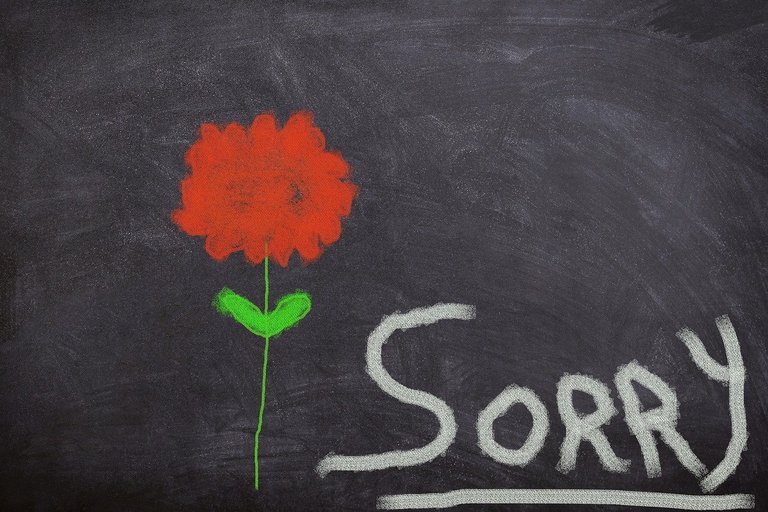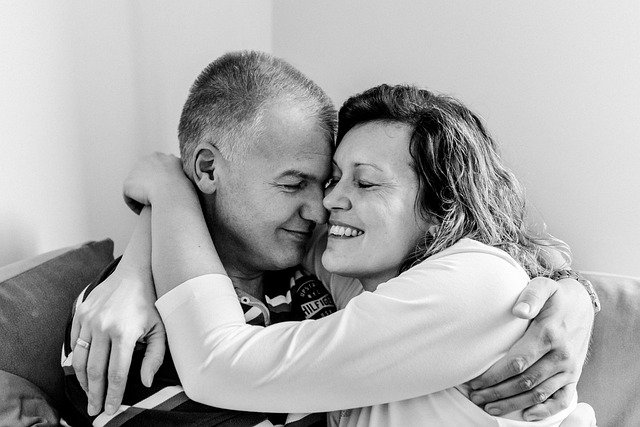THE POWER OF FORGIVENESS AND APOLOGY
Hello, welcome to my blog. I am @johndoy0. This has already been an amazing week @HiveReachOut_community, and we are looking at a topic that, if not addressed, might affect an entire generation. In my country, there has been ongoing religious conflict, which, when traced back, was found to stem largely from unforgiveness. Forgiveness plays a crucial role in our daily interactions and in maintaining healthy family relationships. However, forgiveness and apology go hand in hand; forgiveness is challenging if the offender doesn't apologize. Today, let's explore "THE POWER OF FORGIVENESS AND APOLOGY."
What is an Apology? Its Effects, Both Positive and Negative
An apology is an expression of regret or remorse for actions, words, or behaviors that have caused harm, offense, or inconvenience to someone else. It typically involves acknowledging the wrongdoing, taking responsibility for it, and often includes a commitment to make amends or avoid repeating the behavior in the future. An effective apology is sincere and aims to repair relationships and restore trust.

Image source
Importance of Apology:
Healing Relationships: Apologies can repair damaged relationships by acknowledging mistakes and showing a commitment to making amends.
Emotional Relief: For the person who has been wronged, an apology can provide emotional relief and a sense of closure.
Accountability: Apologizing demonstrates responsibility and accountability for one's actions.
Trust Building: Sincere apologies can help rebuild trust and show that the offender values the relationship.
Conflict Resolution: Apologies can de-escalate conflicts and facilitate open, honest communication.
Personal Growth: Apologizing encourages self-reflection and personal growth, helping individuals learn from their mistakes.
Overall, apologies are crucial for maintaining healthy, respectful, and empathetic interactions in both personal and professional relationships.
Consequences of Not Apologizing:
Damage to Relationships: Trust can be eroded, leading to strained or broken relationships. The person wronged might feel hurt, undervalued, or disrespected.
Resentment and Anger: The person who was wronged may harbor feelings of resentment and anger, which can build up over time and affect their well-being.
Lack of Resolution: Without an apology, conflicts may remain unresolved, leading to ongoing tension and potential future disputes.
Personal Growth: For the person who doesn't apologize, it can hinder their personal growth and self-awareness. Acknowledging mistakes and taking responsibility are important for developing empathy and understanding.
Reputation: Consistently failing to apologize can negatively impact one's reputation, making others view them as arrogant, insensitive, or untrustworthy.
Workplace Dynamics: In professional settings, not apologizing can affect teamwork, collaboration, and overall workplace morale. It might lead to a toxic work environment.
What is Forgiveness?
Forgiveness is the intentional and voluntary process of letting go of feelings of resentment, bitterness, or anger toward someone who has wronged you. It involves a conscious decision to release negative emotions and thoughts, which can lead to personal healing and the restoration of relationships. Forgiveness does not necessarily mean forgetting the wrongdoing or excusing the behavior, but rather, it is about finding peace and moving forward.

Source
Benefits of Forgiveness:
Emotional Healing: It allows individuals to move past their hurt and anger, promoting emotional well-being and reducing stress.
Physical Health: Holding onto grudges can lead to physical ailments like high blood pressure and weakened immune systems, while forgiveness can lead to better overall health.
Improved Relationships: Forgiveness can repair and strengthen relationships by fostering understanding and empathy.
Mental Clarity: Letting go of resentment can clear mental clutter, leading to better focus and mental health.
Personal Growth: It helps individuals grow by learning to manage their emotions and fostering a more compassionate outlook.
Spiritual Benefits: Many spiritual traditions emphasize forgiveness as a path to inner peace and spiritual growth.
Social Harmony: Forgiveness can contribute to a more harmonious society by reducing cycles of retaliation and promoting reconciliation.
What is Unforgiveness?
Unforgiveness is the inability or unwillingness to forgive someone for a perceived wrong or offense. It involves holding onto feelings of resentment, anger, and bitterness toward the person who caused harm. Unforgiveness can have negative emotional, psychological, and sometimes even physical effects on the person who harbors it.
Negative Effects of Unforgiveness:
Mental Health: Holding onto grudges can lead to prolonged emotional stress, anxiety, depression, and bitterness. It can also interfere with personal relationships and social interactions.
Physical Health: Chronic stress from unforgiveness can contribute to various health problems such as high blood pressure, weakened immune system, and increased risk of cardiovascular diseases.
Overall Well-being: Unforgiveness can prevent personal growth and peace of mind, keeping individuals stuck in a cycle of negative emotions and thoughts.
Thank you for stopping by my blog. See you again next time.
Posted Using InLeo Alpha
Nice work. I really love this topic 💕💕💕💯💯
Actually, it is an amazing one. Thank you for stopping by